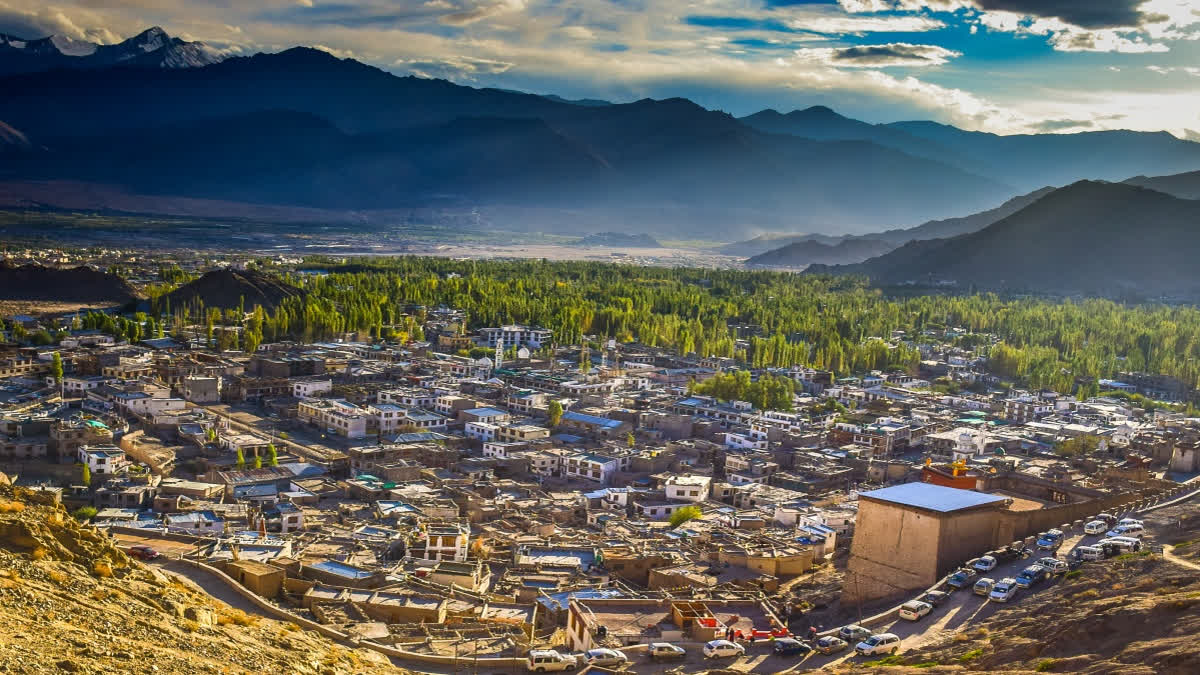Leh: After the Assembly elections in Jammu and Kashmir, the first since the abrogation of Articles 370 and 35A in August 2019, the mood in the neighbouring Union Territory of Ladakh is far more uncertain.
While Jammu and Kashmir regained a Legislative Assembly and an elected government, Ladakh remains without this key democratic institution, leaving many in the region feeling sidelined.
Since the bifurcation of the state, Ladakh has been governed directly by the Centre, with the administration headed by a Lieutenant Governor. The absence of an elected Legislative Assembly in Ladakh has sparked criticism from political leaders and residents, who believe that their voices are not adequately heard in policy-making decisions that affect the region.
As Jammu and Kashmir moves towards a new chapter of elected governance, the people of Ladakh continue to grapple with an uncertain political future, awaiting answers on whether they will also have an opportunity to govern themselves through democratic means.
Feroz Ahmad Khan, Former MLA Zanskar/ Former CEC, LAHDC, Kargil said, "Elections were held in Jammu & Kashmir, and the people participated actively, marking a victory for democracy. After nearly a decade, J&K now has elected representatives to voice the concerns of its citizens."
"However, following the bifurcation in 2019, Jammu & Kashmir became a Union Territory (UT) with a legislature, while Ladakh was left as a UT without one. The unfortunate reality is that Ladakh still lacks an elected government, apart from the Hill Council," said Khan.
"We have been continuously demanding our constitutional right, and democracy must be restored in Ladakh as well. Just as elections have been held in J&K, they should also be conducted in Ladakh, either by granting statehood or as a UT with a legislature.
"At the very least, the people of Ladakh should have the power to form their own government, especially when we proudly claim that India is the mother of democracy. It was taken away from us, and though it might have been acceptable in the beginning, the situation must change now. In the erstwhile state of J&K, we had MLAs and MLCs representing us, but that is no longer the case. Our demand is clear: democracy must be restored in Ladakh so that the people can govern themselves and enact laws that truly reflect their needs," added Khan.
Chering Dorje Lakrook, Former Minister and President of the Ladakh Buddhist Association shared similar concerns.
Lakrook said, "The key difference lies in the fact that Jammu and Kashmir was granted a UT with a legislature, while Ladakh was made a UT without one. Now, J&K will have its own MLAs, Chief Minister, and Cabinet. This is precisely why the Ladakh Apex Body and Kargil Democratic Alliance have launched the 'Delhi Chalo Pad Yatra' and this ongoing agitation— to demand full statehood for Ladakh."
"We want to have our own MLAs, Chief Minister, and a say in the budget. It is unfortunate that Ladakh remains a UT without a legislature. We have undoubtedly been side-lined; Ladakh should be treated like any other part of the country, with a democratic system in place. Given its strategic importance and vast geographical size, Ladakh deserves to be governed by its own representatives," added Lakrook.
Deldan Namgyal, former MLA from Nubra said, "It is unfortunate that while the Legislative Assembly has been restored in Jammu and Kashmir, Ladakh remains without a law-making body and public representatives."
"J&K has the opportunity to elect their representatives through the adult franchise, but Ladakh is confined to a statutory body with no legislative powers. Previously, we had four MLAs, two MLCs, and one MP to represent us. Now, we are left with just a single MP, and our voices are largely neglected, while J&K has its Assembly," added Namgyal.
He said, "Ladakh holds strategic importance, situated along the Sino-Pak border, and to strengthen this region, the people must be empowered. Empowerment means giving the public decision-making and law-making powers, just like in J&K. That's why it is important for Ladakh to have its own legislature."
"I congratulate the people of Jammu and Kashmir on the restoration of democracy, but sadly, Ladakhis are left without representation or an Assembly, and our concerns go unheard. The Centre must consider the demands and aspirations of Ladakh, particularly the four-point agenda.
"The government should either restore Ladakh's statehood or include it in the Sixth Schedule so that the planning and development of Ladakh can be formulated by its people, not by bureaucrats. I urge the government to pay attention to the aspirations of the people of Ladakh," added Namgyal.
Murtaza Fazily, a journalist from Kargil said, "Ladakh has been continuously neglected for the past five years. The bifurcation of one state into two left Ladakh without legislative power. There is still no clarity regarding the LAHDC Act, and it seems the government is deliberately turning Ladakh into a buffer zone, focusing on defence control rather than real development."
"If the government truly wants progress, why are they denying public representation? In the last five years, there have been hardly any gazetted posts advertised, and without legislative power, this type of Union Territory, which lacks a legislature, is of no use," added Fazily.



